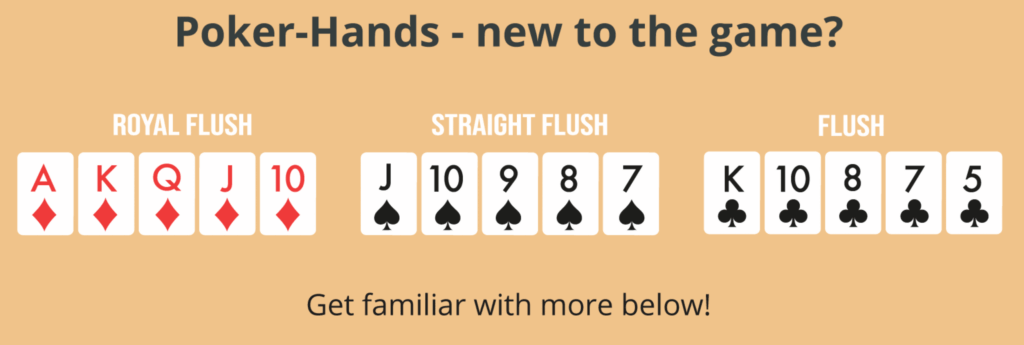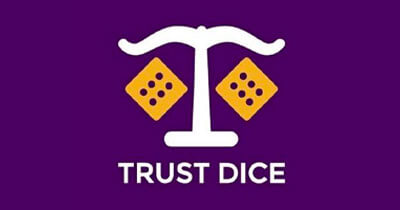Poker Variants
A comprehensive guide to poker variationsThe rise of online casinos has exposed New Zealanders to other types of poker. Why not step out of your comfort zone and try one of these poker variants?
Play Poker at Some of Our Top Online Casinos in NZ
10 most popular Poker variants you can play online
The number of poker variations available may make it difficult for you to decide which one to play. We’ve summarised your options below in an at-a-glance list, so choosing your variation isn’t the daunting task you initially thought.

1. Texas Hold’em
The two places left of the dealer are the blinds, who start the betting with a predetermined amount. Each player then receives two hole cards and can call, raise or fold based on their cards.
The dealer deals three community cards, the turn and the river, interspersed with betting rounds. Your objective is to make the best five-card hand possible, using your dealt cards and the community cards.
2. Omaha
Sometimes referred to as Omaha Hi, this game is very similar to Texas Hold’em and one of the more popular poker variations. The main difference between the two games is that you receive four hole cards in Omaha instead of two.
Your five-card hand must consist of at least two of your hole cards and no more than three community cards.
3. 7-Card Stud
After paying an ante, you receive two hole cards and a card face-up. The player with the lowest face-up card starts the betting with either a “bring in” or “complete”. Moving clockwise, other players call, raise or fold.
Players receive a fourth, fifth and sixth face-up card and a seventh card face-down, betting in between each deal. The highest five-card hand wins the game.
4. Five-Card Draw
Five-card draw is one of the easiest types of poker games to learn. Blinds kick off the betting action, after which the dealer deals everyone five cards. You fold, call or raise based on your possibilities for a winning hand.
A draw round follows to replace any undesirable cards. There’s one final betting round after the draw before the showdown, where the best five-card hand wins the game.
5. 3 Card Poker
In 3 Card poker, you play against the dealer rather than the other players. Your goal is to beat the dealer’s hand with the best three-card poker hand using the cards that you’re dealt. There are no community cards or draw options like other poker variations.
6. Caribbean Stud Poker
You also play against the house in Caribbean Stud. Each player places an ante bet before receiving five cards face-down. The dealer also receives five face-down cards but flips one over. Based on this face-up card and your hand, you decide whether to continue playing or fold.
7. Ultimate Texas Holdem
In Ultimate Texas Hold’em, you play against the dealer. Everyone makes an ante and a blinds bet and receives two hole cards. Based on these, you can check to stay in the game without betting at that stage or make a play bet. After a play bet, you can’t bet again during the game.
The dealer deals three community cards, followed by two more, with players betting after each deal. When betting is complete, the dealer reveals their hole cards and determines the best hand between them and each player.
8. Omaha Hi/Lo
In Omaha Hi/Lo, the goal is to have a winning high and low hand for the total pot, called ‘scooping’. Failing this, the players with the highest and lowest hand split the pot.
Each player receives four hole cards. You must make a low and a high hand, using two hole cards and three of the five community cards. The highest-value card in your low hand can be an eight.
9. 2-7 Triple Draw
The winner in 2-7 Triple Draw is the player with the best low five-card hand. Aces are high, and straights and flushes count as high, so the best hand is 2-3-4-5-7 of varying suits. Each player receives five cards, with three draw rounds to replace unwanted cards.
10. Razz
The winner in Razz is the player with the lowest hand. Aces are low, and straights and flushes don’t count, so your best option for a winning combo is A-2-3-4-5. Gameplay is very similar to 7-Card Stud and follows the same betting pattern.
11. Badugi
Badugi is another lowball game. Each player receives four hole cards, and you aim to have the lowest hand. Aces are low, so the best hand you can make is A-2-3-4 of different suits, called Badugi. There are three chances to draw and replace cards during the game.
12. Short Deck
Short Deck poker bears some similarities to Hold’em, although it uses antes rather than blinds. Additionally, the deck doesn’t contain 2s, 3s, 4s or 5s. After the antes and preflop betting round, the game follows the same pattern as Hold’em with the flop, turn and river interspersed with betting.
13. Let it Ride
Let it Ride starts with a series of three bets: the ante, first bet and second bet. You can withdraw your first bet or let it ride, depending on your cards after the deal.
When the dealer turns the first community card, you decide whether to withdraw or play your second bet. The game pays on a pair of 10s or higher, and you make a hand from your three cards and two community cards.
14. Chinese Poker
Chinese Poker only accommodates up to four players at a table. Each player receives 13 cards and must make two five-card hands and a three-card hand. The layout of your hands on the table is vital to avoid penalties. There are no blinds, antes or bets. Instead, scoring is done after each round.
Which Poker variation suits you the best?
Choosing one of these poker variations need not be as daunting as it seems. Your choice depends largely on your reasons for playing, how proficient you are, and how easily you pick up rules and gameplay.
If you’re a beginner, you’ll enjoy one of the more basic versions like Five-Card Draw, but if you’re an old hand at the game, you may enjoy learning one of the newer poker variants like Badugi.
Poker variants with the lowest house edge
The house edge can vary substantially between poker variations, especially between live games and video poker. Additionally, some casinos implement subtle rule changes that can affect the house edge of a particular version. These are the types of poker games with the lowest house edge:
| Variant | House edge |
|---|---|
| Texas Hold’em | 2.19% |
| Ultimate Texas Hold-em | 2.19% |
| 3-Card Poker | 3.37% |
| Let it Ride | 3.51% |
| Omaha Hi/Lo | 3.55% |
| Caribbean Stud | 5.22% |
Poker variations that payout the most
These are the payouts you can expect from some of the most popular poker variations.
Caribbean Stud Poker
- Royal Flush 100:1
- Straight Flush 50:1
- Four of a Kind 20:1
- Full House 7:1
- Flush 5:1
- Straight 4:1
- Three of a Kind 3:1
- Two Pair 2:1
- One Pair or less 1:1
Texas Hold’em
- Royal Flush 100:1
- Straight Flush 20:1
- Four of a Kind 10:1
- Full House 3:1
- Flush 2:1
- High Card 1:1
The best variants to try when you’re new to a casino
The objective of poker is simple: make a winning hand with the available cards. However, the gameplay isn’t always straightforward, and some variants have more complicated rules than others. These variants are easiest for poker beginners:
- Five-Card Draw: This is one of the easiest poker variations to learn. The rules are simple, and the game doesn’t require much strategizing, so you can sit back and enjoy the fun.
- Texas Hold’em: Few online casinos don’t include Texas Hold’em in their lobby. Its easy gameplay and simple betting rules make it an excellent choice for newbies.
- Three-Card Poker: Here, you don’t play against anyone other than the dealer. There are also no community cards or draws. It’s simply your hand against the dealer’s hand.
Types of poker to play if you’re a pro
Once you’ve cut your teeth on the basics of poker, you can up your game and try one of these variations played by professionals.
- 7-Card Stud: Before Texas Hold’em emerged, professional poker players enjoyed the competition of 7-Card Stud. This game is more challenging than others, and with all players given a sneak peek at some of the cards in play, strategy is key to a successful round.
- Texas Hold’em: Although this game is suitable for beginners, it’s also a popular variant with the pros who play it in the World Series of Poker. It’s easy to learn yet difficult to master, making each game more challenging than the previous one.
Poker variations you should avoid
Each poker variation has something unique that makes it exciting to play. However, some are more of a risk than others, and if you want to get the most out of your experience, it’s best to avoid them.
Omaha Hi/Lo: The act of making a high hand and a low hand can easily confuse inexperienced players. Additionally, players forget that each hand must consist of two hole cards and three community cards.
Chinese Poker: This is another multi-hand version and requires you to make up three hands from your 13 cards. It’s vital to master the right way of laying your hands out to avoid unnecessary penalties.
Poker ain’t luck, but skill!
Poker demands dedication, wits, and loads of practice. Naturally though, some variants are easier to learn than others.
So if you’re a novice, you can start off with the easiest type of poker which is the Five Card Draw. Once you get the hang of the basics, you can play advanced poker versions.
Most online casinos let you play casino games for free in the demo version. So go try them out and practice before you bet real money!





